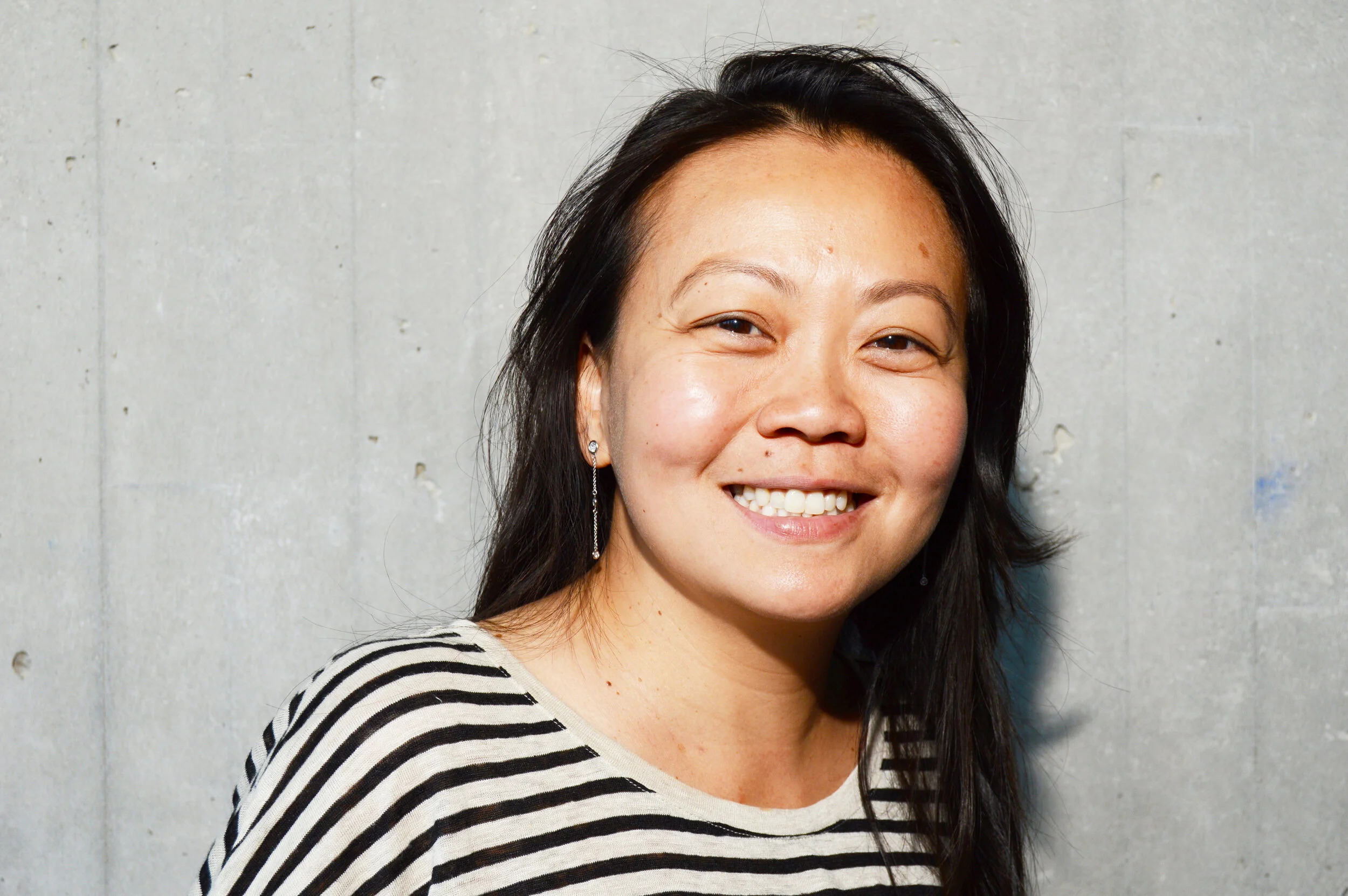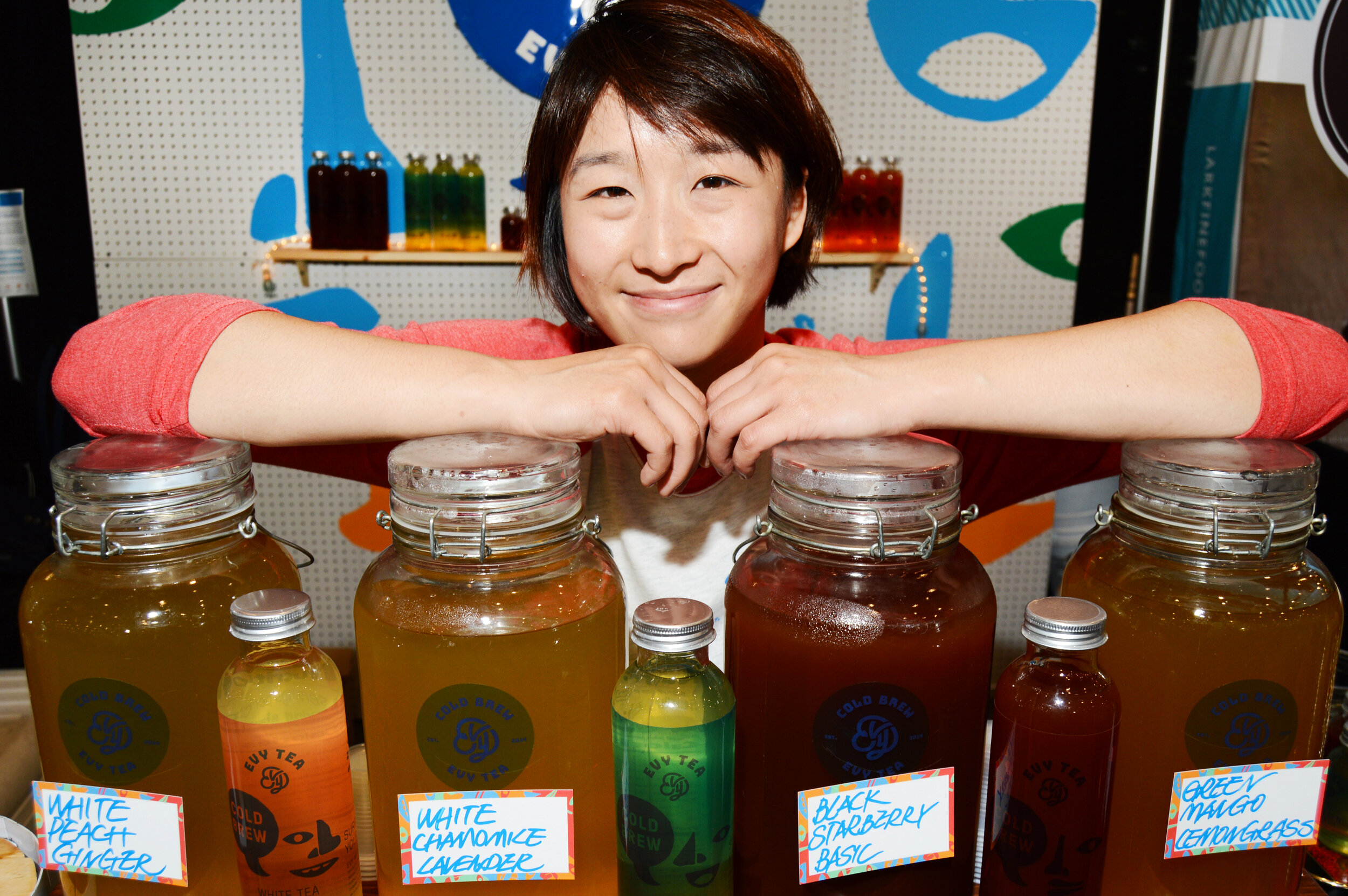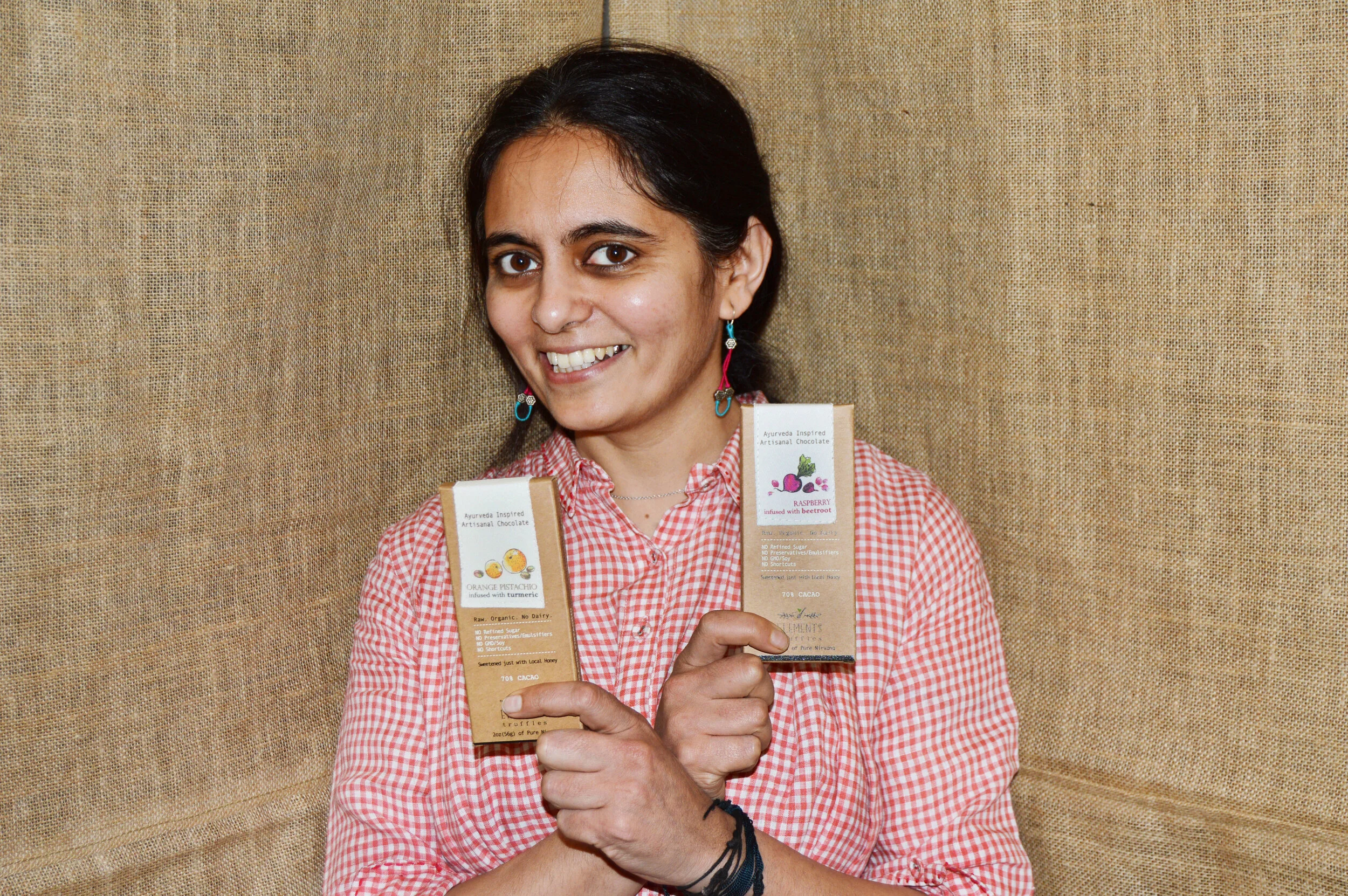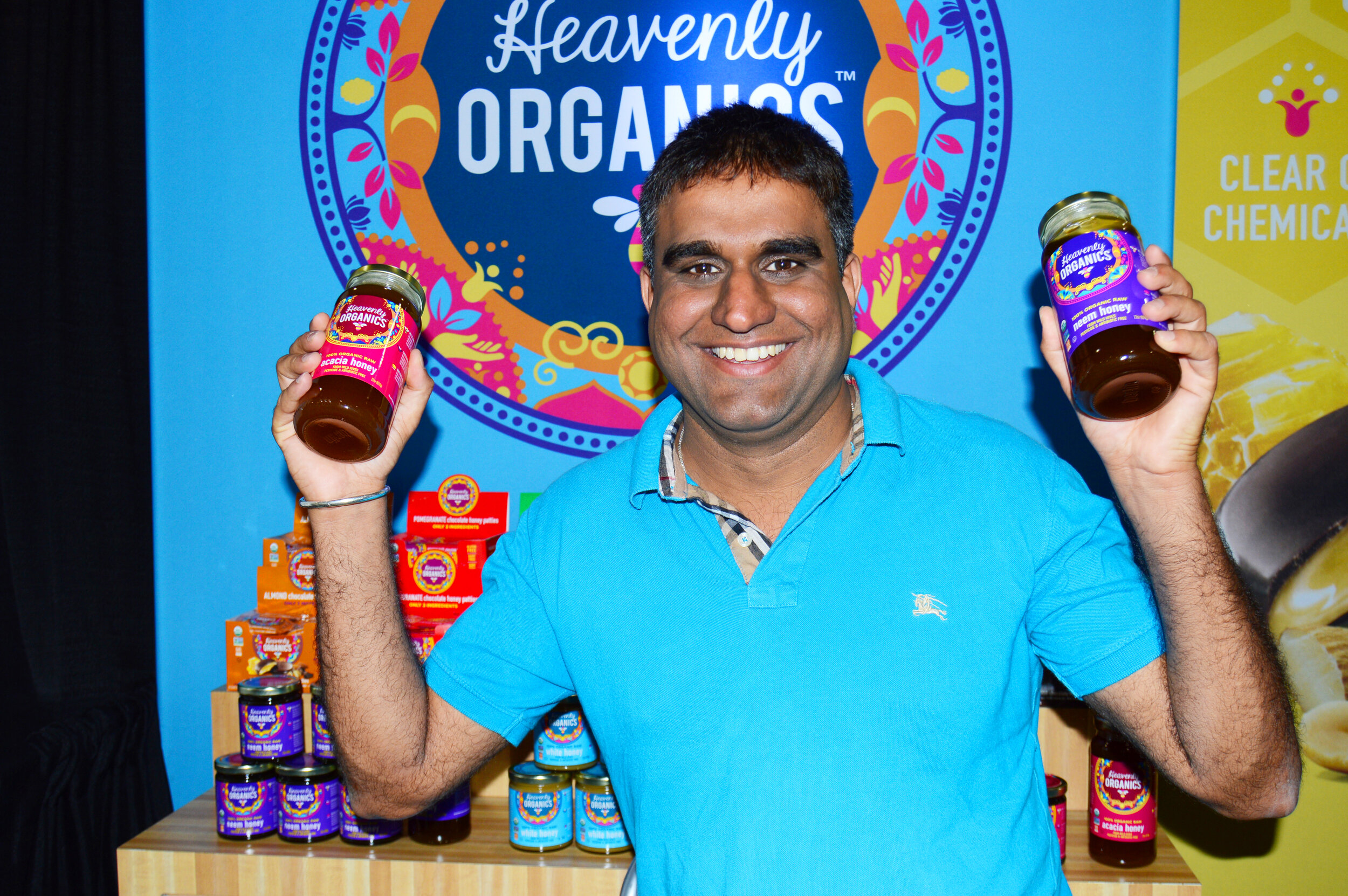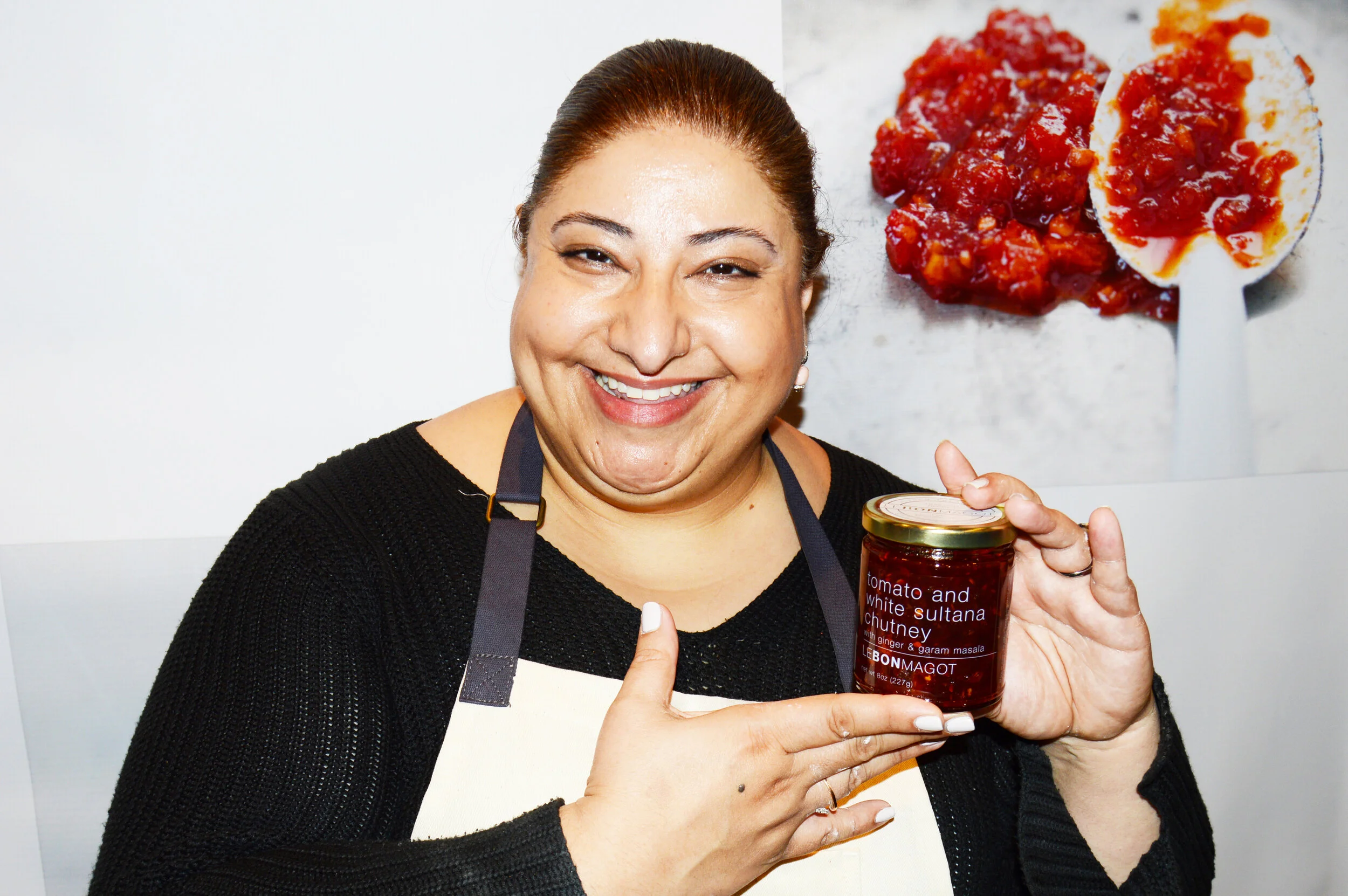Immigrant Entrepreneurs Poised To Shake Up The US Culinary Landscape
Published in Forbes, part 1 & part 2, on June 27, 2017
Today is the last day of the mammoth Fancy Food Show taking place inside Manhattan’s cavernous Javits Convention Center. Endless rows of exhibitor booths and pavilions fill this vibrant, verging on frenzied, trade show featuring more than 2,600 food companies worldwide. It’s logos-a-go-go as far as the eye can see. Any type of edible item imaginable is represented, from traditional jarred tomato sauces to pasta made with cricket flour. Overlapping cooking demos along with food samples create a unique blend of aromas.
An estimated 25,000 industry insiders descend on the show over its three days. Potential buyers and brokers working for retailers like Whole Foods, Amazon Fresh, regional supermarkets, and independently owned stores or distributors, peruse the booths looking for new products, producers and trends.
Once again immigrant entrepreneurs living in the U.S. have created some of this year’s most innovative products and business models, incorporating aspects of their country with U.S. business opportunities. Similar to previous generations of immigrant entrepreneurs who have made hummus, sushi or what’s called Greek yogurt mainstream, these entrepreneurs could potentially change what the average U.S. consumer eats and drinks.
Maxime Pouvreau has created a creamy French dessert staple for U.S. consumers. Photo: Nina Roberts
Pastry Chef Maxime Pouvreau moved from the South of France to San Francisco, California, eight years ago because, as he puts it, “I met a girl.” Within his tiny booth that includes a full refrigerator of his product—jars of creamy, rich custard known as “pots de crème” in France—Pouvreau explains the evolution of his company, Petit Pot.
Upon arrival in the U.S. Pouvreau immediately noticed the bleak absence of any pots de crème desserts, omnipresent in France. “You have the yogurt section,” describes Pouvreau of French supermarkets, “and about the same size, is the creamy desserts.”
Three years ago Pouvreau took matters into his own hands and launched Petit Pot a startup devoted to pots de crème, packaged in little jars with orange tops. “People don’t really know what the product is,” concedes Pouvreau, “we are sort of creating a new category. That was hard. But it helps that I’m from France and a pastry chef, so there’s some authenticity.”
The initial Petit Pot laboratory was in the Michelin-starred restaurant Coi’s kitchen, after hours, where Pouvreau worked as the pastry chef. Eventually Pouvreau went door-to-door selling his pots de crème desserts; Rainbow Grocery was one of his first customers. They sold well and within several months Pouvreau had a distributor.
Petit Pot is now a seven-person team selling approximately 12,000 jars a week. It's available in five flavors including a lemon curd that has hints of key lime and dark chocolate, made with real chocolate. Petit Pot will soon be available in New York City stores and via jet.com.
“Being an immigrant,” reflects Pouvreau who sports a T-shirt with the charming Petit Pot jar logo, “I didn’t know how it worked in terms of selling a product.” He utilized the enormous support and resources he found among fellow French immigrant entrepreneurs living in San Francisco and New York City.
Nona Lim specializes in bone broths and soups. Photo: Nina Roberts
Nona Lim is an immigrant entrepreneur from Singapore, the founder of a natural soup and bone broth company in Oakland, California. Her eponymous, 20-person company, Nona Lim, makes bags of soup that sell in approximately 1,000 stores across the country, including Whole Foods and soon Costco. Savory broth flavors range from Thai Curry and Lime to Vietnamese Pho, sold in liquid form in bags or a new, to-go cup.
Lim moved to the U.S. in 2006 by way of London because of her husband’s job opportunities. She dove into the food business upon arrival, despite being new to the U.S. with no food background; she’d previously worked in the tech sector. Her first two businesses, one of which was the first meal-kit delivery, were a little ahead of their time, according to Lim. “I’ve learned that it’s good to be innovative,” says Lim in the spacious, light-filled Javits Center hallway, “but you have to get the timing right.”
Lim pivoted and rebranded as Nona Lim in 2013; she recently raised $3 million in seed funding from Harbinger Ventures among other venture capital companies.
The benefits of being an immigrant entrepreneur have far outweighed the challenges. Lim values introducing the U.S. consumer to a unique taste profile, which she attributes to being born and raised in Singapore. She adds that she’s been free to create and do things differently, “Because I’m not bound by the traditions or culture of this country.”
Livio Bisterzo amid his supply of Hippeas puff snacks at this year's Fancy Food Show. Photo: Nina Roberts
Hippeas is a healthy puffed organic snack made of baked chickpeas that actually tastes good. This snack is the creation of serial entrepreneur Livio Bisterzo, originally from Italy by way of London, now based in Los Angeles, California.
Bisterzo sits amid cartons stacked high of Hippeas snacks, handing out the little yellow snack bags to anyone passing by. In an Italian-British hybrid accent, Bisterzo explains that he looked at major trends back in 2015, “And the legume story was so relevant.”
He began concocting this healthy snack that he wanted to resonate with mainstream consumers. Hippeas are gluten-free, vegan, kosher and comes in five flavors including “Sriracha Sunshine.”
Bisterzo underscores the competitive nature of the snack industry and its high failure rate, regardless if an entrepreneur is foreign- or American-born. “You come to a show like this and 70 to 80% of exhibitors don’t come back.”
“We are in the second year of business,” says Bisterzo, “we should close the year with $11 million. Next year, we’re pushing for double that.” Hippeas are sold across the country in Whole Foods, Starbucks and Safeway, among others.
Bisterzo moved to the U.S. with his wife and three children, no easy feat, specifically to launch Hippeas in 2015. He chose Los Angeles as his home, where Hippeas now employs 34 people. He’s found a supportive community of entrepreneurs and venture capitalists who are focused on he intersection of food and tech.
Unlike many immigrant entrepreneurs, obtaining a visa was not terribly challenging. Bisterzo’s E-2 Investor Visa took eight months. “I had a little bit of a track record,” notes Bisterzo who was previously in the organic tea business, “I was fortunate that I could invest in this company.”
Evy Chen of Evy Tea, a cold brew tea company Chen created and launched based in Boston, MA. Photo: Nina Roberts
“We’re the first cold brew tea company in the United States,” says Evy Chen, the founder of Evy Tea, based in Boston, Massachusetts. Evy Tea features natural cold brew ice tea in unique flavors, from Black Tea Strawberry Basil to Green Tea Mango Lemongrass. Chen launched Evy Tea in 2014 and it’s now an 18-person company. Bottles are sold in New England Whole Foods stores, the brick-and-mortar Tea Bar by Evy Tea and via a converted 1976 Airstream Argosy, found in and around Boston.
The Evy Tea booth has a whimsical, fun vibe. Giant jars and sleek bottles are filled with colorful ice tea, doled out by her staff to the steady stream of the trade show attendees. Chen explains that she was born and raised in China but her parents decided that she should leave the country so her exuberant personality that got her in trouble wouldn't be squelched. At age 18 Chen arrived in the U.S. to attend Emerson College after three years of school in Switzerland.
“When I got here, I was quite fascinated by the ice tea culture,” says Chen, “It’s big, it’s plentiful, it’s cheap and it’s so sugary—it will kill you eventually.” She adds that most commercial ice teas have more sugar than Coke.
The concept behind Evy Tea was initially inspired by the cold brew coffee craze—a brewing process that doesn’t involve hot water. Chen experimented cold brewing tea leaves, flavoring them with organic fruits, herbs and spices. According to Chen, her tea leaves are “massaged” by the cold water they’re submerged in for more than 16 hours, which produces a clean taste without any bitterness.
Mixing aspects of tea culture with American entrepreneurship is exciting for Chen. “I’m taking something old, very traditional, and putting my spin on it,” says Chen, who hugs nearly every person visiting the Evy Tea booth who seems vaguely familiar. Chen wants to be the face of the new cold brew tea movement.
Alak Vasa is the founder of Elements Truffles. Photo: Nina Roberts
Across the Hudson River from Manhattan is the home of Elements Truffles in Jersey City, New Jersey. Alak Vasa, a former algorithmic trader at Goldman Sachs founded this Ayurveda inspired chocolate startup in 2016. The six-person team meditates prior to each chocolate making session and chants are played during the process.
Vasa’s raw, dairy-free chocolates are sweetened with honey and flavored with pure essential oils. Flavors range from orange pistachio infused with turmeric, to raspberry with beetroot infusion. Elements Truffles are sold online and in approximately 100 retail outlets across the country.
“My passion has always been with good food,” explains Vasa inside her intimate burlap covered booth as her husband, who earlier joked, referring to himself as the “free labor,” tends to curious show goers who sample the chocolates. “I have a sweet tooth,” continues Vasa, “I love my desserts.”
After Vasa quit her job in March 2015, she launched the nascent version of Elements Truffles. “I realized,” recalls Vasa when she started experimenting with flavors, “it’s the memory palate from growing up!” Vasa was born in the U.K. and raised in India. She arrived in the U.S. to earn a masters in computer science at the University of Southern California.
“Ayurveda was such a huge part of growing up,” says Vasa, “which I never appreciated!” she laughs. Vasa describes Ayurveda as a sister science to yoga. “Ayerveda focuses on bringing balance to your system through food,” explains Vasa.
Vasa notes that customers often think she’s an “Ayurveda Expert,” just because she’s from India. “I wouldn’t call myself an expert,” says Vasa, “but I do bring some wealth of experience growing up in that environment.”
Entrepreneurship isn’t easy, concedes Vasa, but she attributes her perseverance to growing up in India. “Coming from a developing country like India, there are certain values that get ingrained in you,” says Vasa, “There are so many people, everything is so competitive; your brain is wired to work really hard.”
Perhaps it’s Vasa’s robust meditation practice or Ayurveda balance or eating lots of chocolate, but she overflows with positivity about her reception as an immigrant entrepreneur in the U.S. “This country has actually given me the chance to fulfill my dreams,” says Vasa, “I can’t think being an immigrant as something that ever stopped me.”
Amit Hooda of Heavenly Organics holds jars of honey. Photo: Nina Roberts
Amit Hooda was born northwest of Delhi, India, which was a conflict zone for the first 11 years of his life. This experience has stayed with Hooda and inspired him to create the honey company Heavenly Organics, based in Keota, Iowa.
Heavenly Organics specializes in honey harvested in conflict areas, namely Kashmir and central India. The goal is to create jobs in professions that existed before any conflict, in this case beekeeping, while simultaneously providing U.S. consumers with healthy, clean, organic honey.
The tiny booth can barely fit the handful of employees in town to work the convention. “We are still a small company,” says Hooda, noting that although he launched 12 years ago, “a conflict zone is a very tricky place.” He spent the first three to four years, along with his father Dr. I.S. Hooda, building the supply chain and gaining the trust of the workers.
Heavenly Organics employs 15 people in Iowa and supports 600 families in India, making “just north” of $6 million. Their honey is sold in Whole Foods, Sprouts, Kroger and natural food stores across the country.
Hooda arrived in North America to study electronic engineering at the University of Toronto, but eventually landed in farm country, a small town outside Iowa City. “My parents, they are very spiritual,” explains Hooda, “so they wanted me to go to a meditation-based school in Iowa, you know, TM [Transcendental Meditation],” which he describes offhandedly as what the Beatles did in a cave for three months.
Le Bon Magot founder and CEO Naomi Mobed. Photo: Nina Roberts
Le Bon Magot is a high-end, natural line of chutneys, marmalatas and caponatas created by Naomi Mobed, the founder and CEO. Elegantly designed glass jars that show off the rich reds, greens and dark purples of Le Bon Magot's products, are stacked in the rear of the white booth. A crowd of buyers stand at the front counter to try samples, some people look dazed as they try and place the exquisite and unusual flavors.
Mobed was born in Pakistan, raised in Iran and moved the U.S. at 11-years-old after a few stops in Asia Pacific and Europe. She spent most of her adult life working in finance and banking abroad. When she returned to the U.S. two years ago, Mobed decided it was finally the time to launch the food business she’d envisioned, based on family recipes.
“I knew these flavors need to come alive,” says Mobed, “because there’s nothing else like it out there.” She only uses top quality ingredients and wants consumers to feel like they are eating a condiment they’d find in her family home. “And we’re not a jar-oriented family,” assures Mobed, “we cook everything.”
Le Bon Magot, which means “The Hidden Treasure” in French, is based in Lawrenceville, New Jersey and the products are made in Long Island’s North Fork.
“We’re tiny,” concedes Mobed, who aims to scale-up her business while retaining the high quality of ingredients. “I refuse to believe we live in a society where we cannot manage a supply chain of fresh ingredients,” exclaims Mobed.
Mobed works with a six-person team, including consultants and part time workers. Le Bon Magot products sell in specialty shops across the country like New York City ‘s Épicerie Boulud and Kalustyan’s among others, and Formaggio’s in Boston.
While Mobed believes there is an energized environment around the mainstream embrace of spices and culinary diversity, she notes that some consumers don’t understand her products. “What is a chutney? Why do you need it?” she’s been asked. “But once people taste it," says Mobed "they are much more open to it.”

